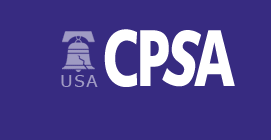CPSA 2011
Science and Technology Coming Together to Make a Difference
October 3 - 6, 2011
Sheraton Bucks County Hotel
Langhorne, PA
Short Courses
Monday, October 3, 2011
8:30 am - 4:00 pm
Sheraton Bucks County Hotel
Langhorne, Pennsylvania
The CPSA Short Courses focus on specialized training. These workshop-style events provide a unique opportunity to learn about current industry practices, emerging applications, and innovative analytical technologies. CPSA Short Course Instructors create a truly dynamic learning environment as key fundamentals are reviewed and first-hand experiences and practical case studies are openly discussed.
Short Course 1
Method Development for LC/MS: Traditional Approaches and Emerging Trends
This practical course on HPLC method development for LC/MS is a tutorial on LC/MS/MS in the bioanalytical laboratory. As a conduit for learning, a major portion of the course is a step-wise method development tutorial for how to develop LC/MS/MS methods based on compound structure. The course discusses the importance of HPLC when interfaced with mass spectrometry including the HPLC and SPE separation of undetected matrix components (cause for “ion suppression”), isomers and labile metabolites. Much of the course is geared towards development of HPLC methods for LC/MS for use in regulated quantitative bioanalysis. A significant portion of the short course will be devoted to development and validation approaches of dried blood spot analysis methods in the LC/MS/MS bioanalytical laboratory.
Instructors:
Roger Hayes, Cetero Research
Shane Needham, Alturas Analytics
Short Course 2
Small Molecule Biomarkers: Strategies for Method Development, Profiling and High Throughput Workflow Solutions in Drug Discovery
Integrated LC and MS approaches for high throughput marker analysis are becoming common practice in a pre-clinical drug discovery setting. Successful support strategies often provide a blend of high throughput methodologies with appropriate resources (automation tools and personnel). This course will target the use of LC for biology support in drug discovery. The focus will be on the use of MS for detection, but a range of other detectors also will be considered in the context of meeting specific biological needs in the preclinical setting. Real-world experience with method development and project support will be thoroughly explored with emphasis on high probability of success and timely delivery of results. Many examples will feature ultra high throughput sample processing, fast LC, method development strategies, building in robustness into LC/MS set ups, and rapid profiling of markers indicating disease state and/or efficacy. Additional examples will be discussed that examine the challenges and approaches toward achieving very high sensitivity and performing difficult bioanalytical separations, including the use derivatization to achieve both higher sensitivity and/or separation control. Also, IT and automation based solutions in streamlining workflows will be examined as a basis for meeting the high throughput demands encountered in drug discovery.
Focus: establishing in vivo mechanistic links to CNS diseases using LC based measurement of small molecule markers and neurotransmitters
Specialties: MS, LC method development, fast LC, nano-LC, SFC, interfacing detectors, streamlined workflows, automation, high throughput, microdialysis, and CNS markers
Instructors:
Mark Hayward, Lundbeck Research USA
Ken Lewis, OpAns
Short Course 3
Analysis of Peptides and Proteins: Sample Preparation to Identification to Quantitation
This year's CPSA program highlights a key trend within the pharmaceutical industry: The rapidly growing demand for the quantitative analysis of proteins and peptides by LC-MS/MS. From the opening plenary lecture on Tuesday morning, the Wednesday biologics session, through to the Thursday biomarkers session, this short course will help conference participants deeply appreciate specific challenges associated with highly successful outcomes in LC-MS based protein analysis. In line with these sessions at the conference program, this preprogram short course will provide an indepth view of the practical aspects involved in protein/peptide analysis by LC-MS/MS.
The use of nanospray enabled MS has developed from a qualitative tool for (global) proteomics to a quantitative method suitable for peptide/protein biomarker validation. Key to success has been the combination of highly specific sample preparation methods, high sensitivity nanospray ionization, and high performance tandem mass spectrometry. Critical parameters involved in robust sample preparation, nanobore LC and nanospray, sensitive & selective MS detection along with their analytical benefits will be emphasized. The transition of the traditionally qualitative nLC-MS/MS technology to those suitable for absolute quantification will be discussed. Real world examples from the literature will be presented. The target audience includes analysts that have been engaged in qualitative proteomics wishing to transition to quantitative methods or analysts that have specialized in small molecule quantification wishing to transition to peptide/protein quantification.
Instructors:
Nalini Sadagopan, Agilent Technologies
Gary A. Valaskovic, New Objective
Nathan A. Yates, Merck
This course will be held
Thursday, October 6, 2011
8:30 am - 4:00 pm
Short Course 4
Is Poor Bioavailability in Early drug Discovery a Problem and If So, How Can We Solve It?
Poor oral bioavailability is one of the leading causes of compound failure in preclinical and clinical development. Compounds with poor oral bioavailability have low plasma exposure and tend to demonstrate high inter-individual variability, which can limit their therapeutic application. Poor oral bioavailability in preclinical species does not necessarily translate into poor human oral bioavailability. This practical/hands-on course is designed to increase participants knowledge of:
- The parameters that determine drug oral bioavailability
- The factors that lead to species differences in oral bioavailability and how to deal with them
- Approaches for optimizing the physicochemical parameters that influence drug solubility/permeability and metabolism
- The workshop will also include a hands-on session that aims at improving your ability to apply these strategies to medicinal chemistry for hit selection, lead optimization and development candidate selection
Targeted Audience: Medicinal Chemists, Discovery Biologists, ADME Scientists
Instructor:
Ayman El-Kattan, Pfizer

 Final Program
Final Program Poster Abstracts
Poster Abstracts